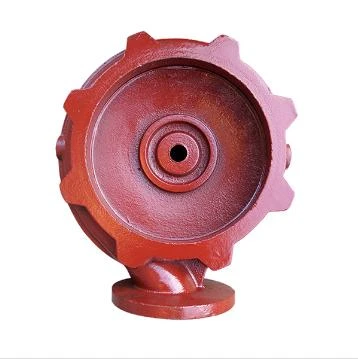Mobile:+86-311-808-126-83
Email:info@ydcastings.com
English
Feb . 17, 2025 12:08
Back to list
impeller
Vertical impellers have revolutionized various industrial applications with their unique design and functionality, offering significant improvements over traditional impeller models. Renowned for their engineering finesse, vertical impellers have emerged as a powerhouse in fluid dynamics and mechanical efficiency. This article delves into the intricate workings and the multifaceted benefits of vertical impellers for industries relying on seamless fluid movement.
A testament to their authoritativeness, case studies from leading industrial operations underscore the transformative impact of vertical impellers. One such case involves a water treatment facility that reported a 35% increase in efficiency following the installation of vertical impellers. The impellers enabled more effective mixing and aeration, crucial for breaking down complex organic materials. This facility's success story is a powerful endorsement of the technology's benefits, demonstrating its applicability across different industries. Trustworthiness in vertical impeller technology is further established through stringent quality standards and certifications. Many manufacturers subject their impellers to rigorous testing, adhering to international standards such as ISO 9001 for quality management. This commitment to quality assures end users of the product's reliability and long-term performance. Furthermore, manufacturers provide extensive warranties and customer support, reinforcing customer confidence in their products. For companies contemplating an upgrade to vertical impellers, partnering with a reputable supplier is essential. Such suppliers typically offer comprehensive consultation services, ensuring that their clients receive a product optimally suited to their specific operational requirements. They provide insights into the customization possibilities, such as blade angle adjustments and material selection, which can further enhance performance and compatibility with existing systems. In conclusion, vertical impellers represent a synthesis of experience and expertise, showcasing cutting-edge engineering and remarkable efficiency. Their rise in industrial applications is a testament to their ability to deliver superior performance, reliability, and cost-effectiveness. By investing in vertical impeller technology, industries stand to benefit from improved operational efficiency and product quality, paving the way for future innovations and enhancements in fluid management systems.


A testament to their authoritativeness, case studies from leading industrial operations underscore the transformative impact of vertical impellers. One such case involves a water treatment facility that reported a 35% increase in efficiency following the installation of vertical impellers. The impellers enabled more effective mixing and aeration, crucial for breaking down complex organic materials. This facility's success story is a powerful endorsement of the technology's benefits, demonstrating its applicability across different industries. Trustworthiness in vertical impeller technology is further established through stringent quality standards and certifications. Many manufacturers subject their impellers to rigorous testing, adhering to international standards such as ISO 9001 for quality management. This commitment to quality assures end users of the product's reliability and long-term performance. Furthermore, manufacturers provide extensive warranties and customer support, reinforcing customer confidence in their products. For companies contemplating an upgrade to vertical impellers, partnering with a reputable supplier is essential. Such suppliers typically offer comprehensive consultation services, ensuring that their clients receive a product optimally suited to their specific operational requirements. They provide insights into the customization possibilities, such as blade angle adjustments and material selection, which can further enhance performance and compatibility with existing systems. In conclusion, vertical impellers represent a synthesis of experience and expertise, showcasing cutting-edge engineering and remarkable efficiency. Their rise in industrial applications is a testament to their ability to deliver superior performance, reliability, and cost-effectiveness. By investing in vertical impeller technology, industries stand to benefit from improved operational efficiency and product quality, paving the way for future innovations and enhancements in fluid management systems.
Next:
Latest news
-
Materials Used in Manufacturing Cap End Pipe FittingsNewsNov.24,2025
-
Material Properties of CF8M CastingNewsNov.24,2025
-
How to Inspect Pump Cap Ends for DamageNewsNov.21,2025
-
Backward Curved Impeller – Efficient Airflow Solutions for Industry | YD CastingsNewsNov.21,2025
-
Automobile Water Pump - Efficient, Quiet, Durable & ElectricNewsNov.21,2025
-
Impeller for Pumps – High-Efficiency, Durable, OEM-ReadyNewsNov.21,2025
Related PRODUCTS










